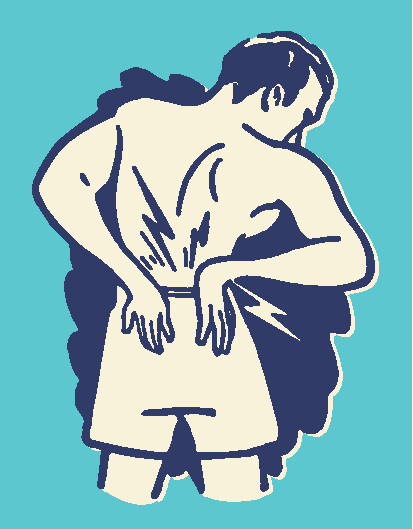As the weather improves and people venture out more often for exercise, increased presentations with muscle aches and strains in the pharmacy can be expected
The causes of muscle pain vary widely, from chronic fatigue syndrome, to fibromyalgia, to cramp and even Covid-19. However, the most common causes of muscle strain and soreness are physical exertion, stress, tension, overuse and minor injuries.
In addition, the HSE has cautioned that muscle pain may be among the symptoms experienced by those who will receive the Covid-19 vaccine in the coming weeks. However, any increase in presentations with muscle pain will most likely be as a result of over-exertion as people take advantage of improving weather and, potentially, an easing of societal restrictions.
In over-exertion, generally, a number of muscle fibres are torn or stretched, however the muscle remains intact and functional. However, in some cases, the muscle itself can be torn and non-functional. In order to help assess the level of damage, Harvard Medical School recommends using, as a general guide, the following grade system to assess and classify muscle strains:
- Grade I: A mild strain, with only a few muscle fibres stretched or torn. Muscle is tender but has normal strength.
- Grade II: A moderate strain, with more injured fibres and more intense muscle pain and tenderness. Accompanied by mild swelling, noticeable loss of strength and sometimes bruising.
- Grade III: This is when the muscle is torn all the way through, sometimes creating a ‘popping’ sensation as the muscle rips or shears away from the tendon. These are serious injuries that cause complete loss of muscle function, as well as severe pain, swelling, tenderness and discoloration. Because Grade III strains usually cause a sharp break in the normal outline of the muscle, there may also be a clear ‘dent’ or ‘gap’ under the skin where the ripped muscle segments have come apart.
Risk
Those most at risk of muscle strain and pain are people who engage in contact sports, such as football, and in sports that require quick starts and bursts of energy, such as basketball and tennis. However, almost all sports carry the risk of muscle strain and the patient’s age and overall physical condition will also be influencing factors.
The duration of the strain may be influenced by age, but also by the location and severity of the strain.
For example, a mild back strain will usually improve over one-to-two weeks and disappear by around four-to-six weeks. Leg strains that are mild-to-moderate can take longer to heal, potentially eight-to-10 weeks, while a Grade III strain may require surgical intervention before it resolves.
Relief
If you are satisfied that muscle pain is not associated with a systemic disease or other underlying condition, the pharmacist is uniquely and ideally placed in the community to offer advice and relief to patients. This can include recommending the right therapy for a particular type of muscle pain and its location. Some patients may also be experiencing unusual neck pain due to excessive screen time during lockdown.
The ThermaCare Heatwraps range provides relief from neck and back pain and both products provide pain relief for up to 16 hours (eight hours wearing, eight hours when taken off). They are clinically proven to provide muscle-penetrating heat and the ThermaCare Back Pain Therapy wraps are suitable for the hip and lower back area and are thin and discrete, so can be used while relaxing or doing activities. ThermaCare Neck, Wrist and Shoulder Heatwraps provide a similar mechanism of action, help to relax tightened muscles, and improve mobility. Patients can be counselled on the correct application to get the maximum benefit from these products.
The duration of the strain may be influenced by age, but also by the location and severity of the strain
If a topical gel is more suitable, the Voltarol Gel range includes Voltarol Emulgel P 1% w/w Gel with a No-Mess Applicator, designed for easy and clean application directly to the site of the pain. Suitable for localised relief of inflammation in muscles, back and neck, as well as sprains, strains and bruises. Voltarol Emulgel P 1% w/w Gel is an NSAID that comes in 30g and 50g tubes and can be used for pain and swelling, as well as muscular rheumatism. If the pain is more constant and is experienced throughout the day, Voltarol Emulgel Extra Strength 2% w/w Gel provides all-day relief and can be used for two weeks under the supervision of a pharmacist.
However, if pain or swelling get worse after seven days of using the product correctly, the patient should be referred to their GP and it is not suitable for children aged under 14 years. Voltarol Heat Patch is an odourless, non-medicated, self-adhesive patch that provides up to eight hours of relief and relaxation for tight and sore muscles.
If the patient requires something that can be used before and after exercise, Mentholatum Deep Heat Rub provides penetrating warmth and helps to increase blood supply to the site of pain. Suitable for stiffness, muscular pain, back and rheumatic pain, sciatica, fibrositis, and sprains, as well as chilblains, the main active ingredients include menthol 5.91% w/w, Eucalyptus oil 1.97% w/w, methyl salicylate12.80% w/w, and turpentine oil 1.47% w/w.
Diclac Relief 1% Gel is an NSAID that provides effective treatment for tendon trauma, ligament damage, and sore muscles and joints due to sprains, strains and bruises. It is also suitable for treating symptoms of soft-tissue rheumatism and osteoarthritis in superficial joints. Each 50g of gel contains 0.5g diclofenac sodium, the active ingredient and as always, patients should be advised on the correct use for optimum effect.
References on request







